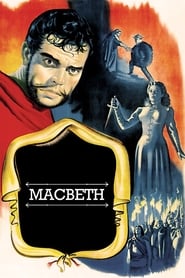Like almost all of Welles' work, you can quickly tell that this film adaptation was made on a criminally small budget imposed by the (admittedly B-movie) studio. And, perhaps because of that, despite Welles' preternatural understanding of cinema (to put it mildly…), it feels fairly stagey and orthodox in its presentation, with the canonical soliloquys clearly delineated and signposted for the viewer. In terms of the film's politics, however, because it was made in 1947, it's difficult for me to avoid interpreting the final scenes as a Hitler-like madman alone his bunker ranting at the world outside, fancifully believing that he is somehow stronger than ever... and merely awaiting his bloody removal by an army that the film treats as the Kingdom's saviour. From my coign of vantage, however, I think I prefer the dark and bitter cynicism of the Polanski version… Anyway, it's a pretty good script with lots to think about — they should commission more screenplays from this guy.
Welles’s cinema, though brilliant, is an acquired taste for the same reason opera is: to love it one must have an appreciation for all-consuming grandeur, so sincere in its conviction that it either soars or falls flat—often moment-to-moment within the same work. The Scottish burrs are a good example: A viewer can dismiss them as poorly done, or can appreciate their rough, craggy, oft-broken sound as a facet of the jagged, primordial landscape, both visual and thematic, in which Welles places the tale.[…]
The building of a relationship between Lady Macbeth and Lady Macduff is a good choice, as its betrayal gives practical incentive for Lady Macbeth to go mad and furthers Shakespeare’s theme of femininity’s need to “unsex” itself to survive in a masculine world. Furthermore, Welles places Macbeth at the scene of Lady Macduff’s murder, so that unlike in Shakespeare, where the Scot goes from doing his own dirty work to bureaucratically assigning it to others, Welles’s Macbeth stays befouled. But the invention of a Holy Father character waving a staff to herald Christianity works less well, mainly because the character’s motives read inconsistently.
— Aaron Cutler (Slant Magazine)
Lady Macbeth […] is regularly filmed from low angles, emphasizing the authority she wields over all those around her, especially her husband, who usually appears below her in the frame.
— Jake Cole (Slant Magazine)
Welles told Peter Bogdanovich that no actor has satisfactorily bridged the gap between the Macbeth easily exploited by women in the play’s first two acts and the merchant of menace of the play’s remainder. In this particular adaptation, Welles the actor arguably makes a better go at it than Welles the director, who may have been concentrating too much on the logistics of his production to put his cast through their paces.
— Eric Henderson (Slant Magazine)
Synopsis: Three witches predict that Macbeth will ascend to the throne of Scotland. To fulfill this prophecy, Lady Macbeth convinces her husband to murder King Duncan, who has come to spend the night at their home. This crime plunges the new ruler into a macabre spiral that will lead him to sink into guilt and madness.

